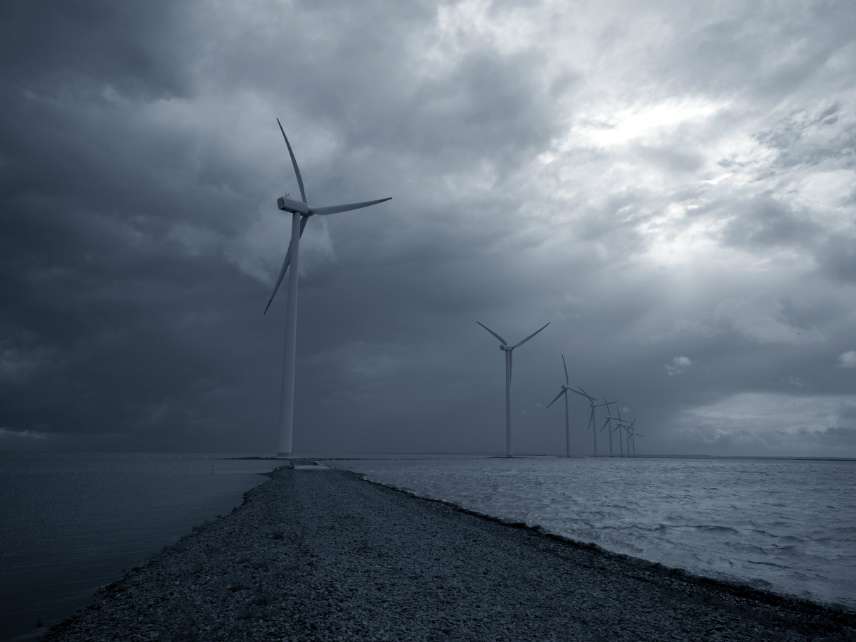Tax Reform Fight Shows Why Subsidies Never Die
The House wanted to scale back an expensive wind energy subsidy, but the Senate prefers to preserve the status quo.

Chances are fading fast that tax reform will roll back a wasteful energy subsidy.
The Tax Cuts and Jobs Act, passed by the House last week, promised to save about $12.3 billion over the next decade by scaling back a "production tax credit" mostly used by wind energy producers. It was a tepid but welcome change to a program that has far outlived whatever usefulness it might have had. Sadly, even this marginal reform seems to be too much for Senate Republicans, who have left the credit untouched in their version of the bill.
"This is how government grows," says Veronique de Rugy, a researcher at George Mason University's Mercatus Center and a regular Reason columnist. "It concentrates benefits on a few winners, and it spreads the cost on a large number of losers."
In 1992, the Renewable Electricity Production Tax Credit gave renewable energy producers a 1.5 cent per kilowatt tax break for the first 10 years a facility is online. That tax break was indexed to inflation, and by 2016 it had grown from 1.5 to 2.3 cents.
That might not sound like much, but it costs the federal treasury about $3.4 billion per year in forgone revenue. The vast majority of its benefits go to wind farm producers, who receive up to 80 percent of these tax credits per year and who have eaten up $12.8 billion in production tax credits since 2008.
When it was first created, the program was supposed to expire in 1999, having fulfilled its role in jumpstarting new wind farms. Instead it has been extended 10 times, most recently in 2015. It has even risen from the dead: The credit has expired five times, and each time it was resurrected by wind lobbyists, who insist their industry can't survive without it. They are now howling about the modest rollback the credit would see under the House bill.
"The House tax bill, far from being pro-business, would kill over half of new wind farms planned in the U.S. and undermine one of the country's fastest growing jobs," said Tom Kiernan, CEO of the American Wind Energy Association, on Friday.
The House's bill, mind you, wouldn't even end the tax credit, which is currently set to expire in 2019. It would merely bring it back to the original 1.5 cent subsidy and restrict the types of new construction that the credit could be applied to.
The Senate bill drops these provisions. Sen. Chuck Grassley (R-Iowa), who initially created the credit—and who wields considerable influence from his position as a senior member of the Senate's Finance and Budget committees—has made it clear that he is set against any change to the program.
De Rugy calls programs like the tax credit "a redistribution of wealth from the non-subsidized to the subsidized." But it is that very redistribution, she adds, that keeps such programs around. The small group of beneficiaries, after all, is highly motivated to keep whatever special exemption it receives. And the much larger set of people who pay? "These unseen victims don't even know or understand the cost of these programs," she says. "Even if they understand, they are not incentivized enough to band and organized enough to fight against the subsidies."
Rent Free is a weekly newsletter from Christian Britschgi on urbanism and the fight for less regulation, more housing, more property rights, and more freedom in America's cities.


Show Comments (30)